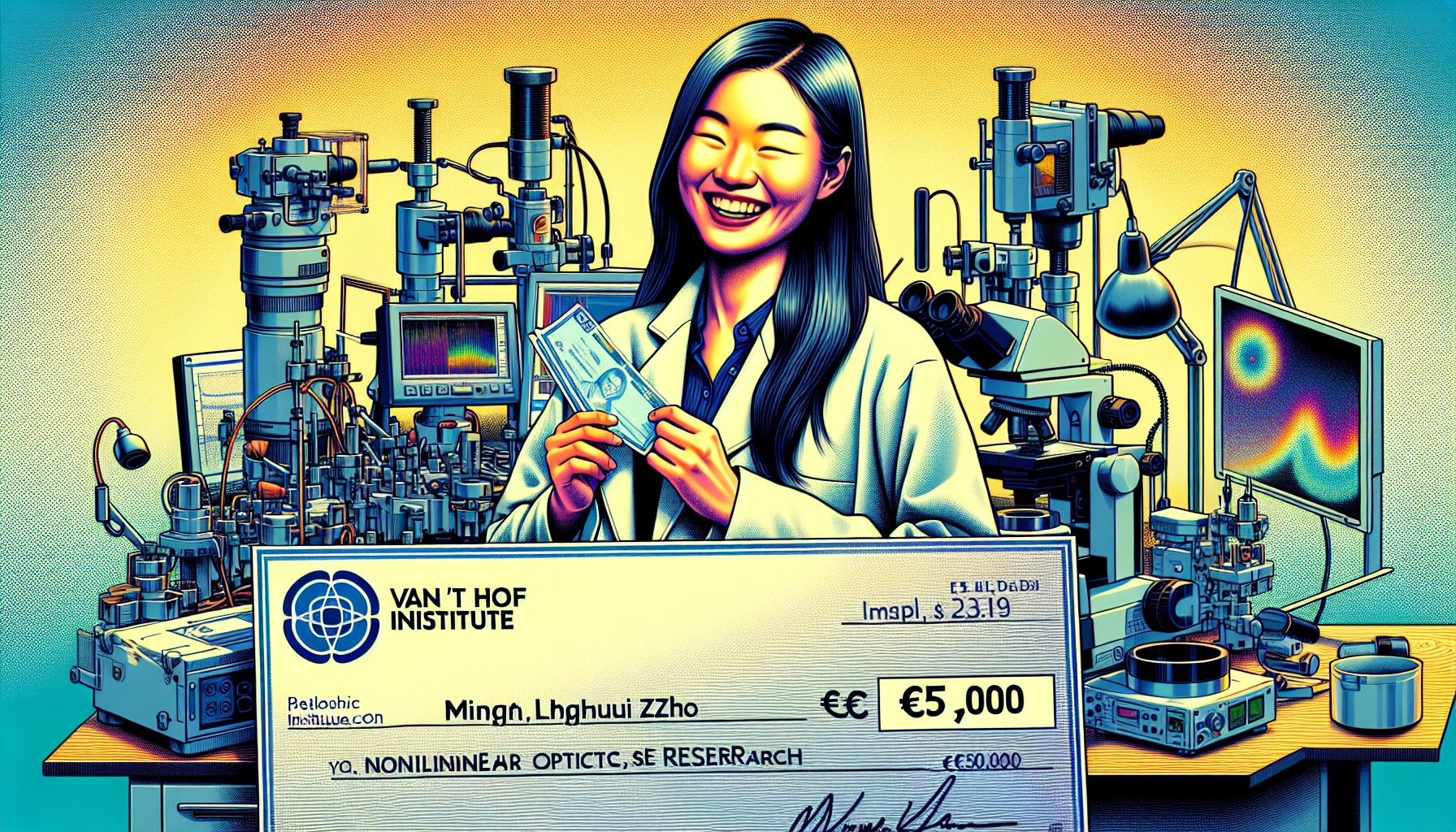Minghui Zhou Receives €50,000 Grant for Organic Nonlinear Optics Research

Dr. Minghui Zhou of Van ‘t Hoff Institute has been awarded a €50,000 grant from the Dutch Research Council to design new organic nonlinear optics and investigate their data storage capabilities.
Breaking Ground in Sustainable Data Storage
The field of data storage is poised for a significant transformation with Dr. Minghui Zhou’s innovative research at the Van ‘t Hoff Institute for Molecular Sciences. By harnessing organic nonlinear optics (NLOs), Zhou aims to address the sustainability challenges posed by the prevalent use of metals and inorganic materials in current data storage devices. This research is especially timely given the rapid development of artificial intelligence, which relies heavily on efficient and eco-friendly data storage solutions.
The Core Innovation
The essence of Zhou’s project lies in the design and application of photoswitchable electron-donor-bridge-acceptor molecules within organic NLOs. These molecules have the unique ability to prolong charge separation times, thereby enhancing the optical response of the materials. This breakthrough could potentially overcome the limitations of current organic NLO systems, which suffer from relatively low optical responses, making them less effective for data storage.
How It Works
Organic nonlinear optics work by manipulating light in ways that traditional materials cannot. The photoswitchable molecules in Zhou’s research can modulate their optical properties when exposed to light. This means that data can be stored more efficiently and retrieved more quickly, offering a significant improvement over current inorganic-based systems. By integrating these molecules into organic NLOs, the optical response is not only enhanced but can also be easily controlled, providing a flexible and efficient solution for data storage.
Benefits of the Innovation
The potential benefits of this innovation are manifold. Firstly, organic materials are generally more environmentally friendly and sustainable compared to their inorganic counterparts. This addresses the growing environmental concerns associated with the production and disposal of current data storage devices. Moreover, the improved optical response and data storage capabilities could lead to faster and more efficient data processing, which is crucial for the advancement of AI technologies and other data-intensive applications.
The People and Place Behind the Innovation
Dr. Minghui Zhou, a postdoctoral researcher at the Van ‘t Hoff Institute for Molecular Sciences, is spearheading this groundbreaking project. Based at the University of Amsterdam, Zhou’s work is supported by two prominent figures in the scientific community: Prof. Dr. Bas de Bruin and Prof. Dr. Wybren Jan Buma. With her PhD obtained from the University of Amsterdam in June 2023, Zhou is well-positioned to lead this research, leveraging her expertise in molecular sciences and photonics.
Future Prospects
Looking ahead, the implications of Zhou’s research could be far-reaching. Successfully developing organic NLOs for data storage could revolutionize the data storage industry, making it more sustainable and efficient. This innovation not only holds promise for reducing the environmental impact of data storage but also for enhancing the performance of AI and other technologies that are integral to modern society. As Zhou and her team continue their research, the scientific community eagerly anticipates the outcomes of this pioneering project.

